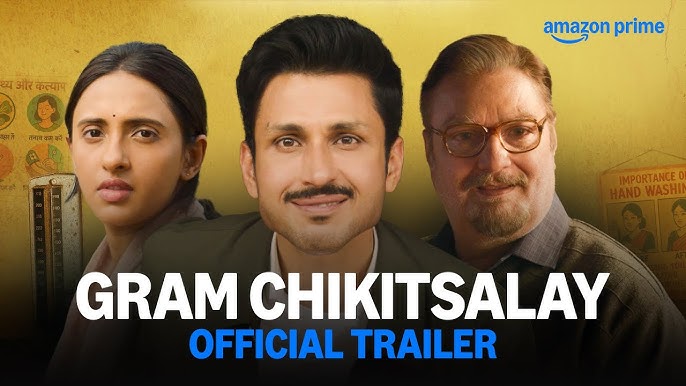The Bombay high court on May 8 rejected the ad interim application filed by Kathavachak Films for stay on release of TVF’s web series, Gram Chikitsalaya, on Amazon Prime on May 9. It was alleged on behalf of Kathavachak Films that it had signed Anindya Bikas Datta to direct Quack Shankar (later renamed Quack Shambhu) based on his own script, but Gram Chikitsalaya was copied from Datta’s script. Kathavachak Films is a production company of Raaj Shaandilya and Vimal Lahoti.
Justice Manish Pitale rejected the application as Kathavachak Films approached the court at the eleventh hour although the date of streaming of the web series (May 9) was clearly in the public domain from February 7/8. The court also held that Kathavachak Films was not able to prove that the story of the web series was lifted from Datta’s script, Quack Shankar, which he had registered with the Screenplay Writers Association in 2020.
It was alleged by Kathavachak Films that Datta sent his registered script to actor Vinay Pathak in 2021, but things did not work out between them because Vinay Pathak wanted to be cast in a particular role only, which was not acceptable to Datta. It is Kathavachak Films’ case that the actor then gave the script to The Viral Fever (TVF) to produce and, in return, secured a lead role in the series. However, TVF proved in court that it is the production house (TVF) which approached the actor (Vinay Pathak) rather than the other way round, as alleged by Kathavachak Films. TVF also proved that the script for Gram Chikitsalaya was written by two writers — Vaibhav Suman and Shreya Srivastava — hired by it.
The court held that prima facie, there did not appear to be an attempt on the part of TVF to copy the central idea and the scenes of Quack Shankar. “Prima facie, the idea of an educated MBBS doctor reaching a rural set-up, leading to interaction with rural folk and an existing vaidya, alleged to be a quack, cannot be said to be a copyrightable idea,” the court concluded.





























